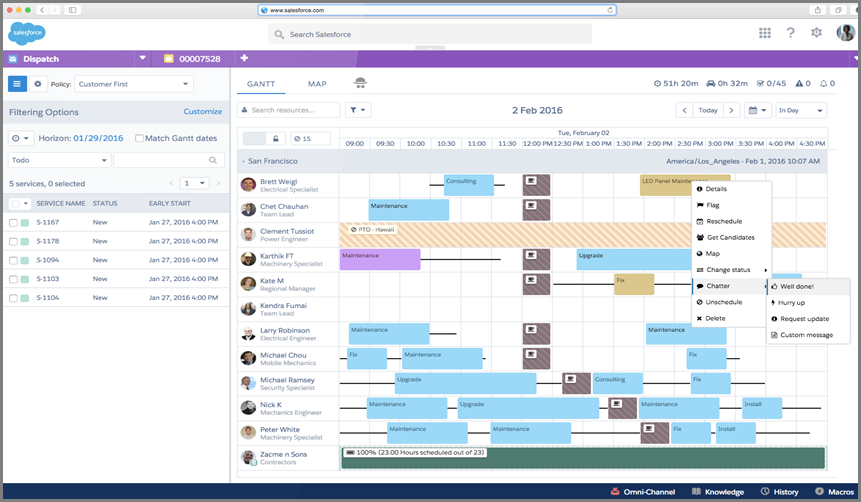Service delivery, customer happiness, and operational efficiency can all be greatly increased by integrating AI with Salesforce Field Service Lightning (FSL). Careful planning, data management, tool selection, and appropriate training are necessary for a successful implementation, nevertheless. The main processes for Implementing AI in salesforce FSL are examined in this blog post, along with recommended practices for AI deployment.
Steps for Implementing AI in salesforce FSL
1. Assessment and Planning
First, examine your existing FSL configuration. Next, determine which areas could benefit most from AI. Identify your company’s objectives and the challenges faced in field service operations. Then, use this information to create a comprehensive AI integration plan. This plan should include your goals, schedule, and the materials needed for execution.
2. Data Collection and Quality
Data is essential for AI. Therefore, ensure you have access to relevant, high-quality data. Collect information from various sources, including IoT devices, customer interactions, and service records. Next, clean and organize this data to eliminate errors and inconsistencies. Effective data management leads to accurate AI forecasts and recommendations.
3. Tool Selection and Integration
Select the AI tools and platforms based on your FSL requirements. Salesforce offers several AI-enabled solutions, such as Einstein AI, which integrates seamlessly with FSL. Consider the features provided by each tool and choose the ones that best meet your needs. Once you have selected the tools, proceed with the integration process. Ensure that your current FSL configuration and procedures align with the AI tools to facilitate a smooth implementation.
4. Training and Deployment
Teach your staff how to use the new AI-powered tools before full deployment. Next, provide them with materials and conduct practical training sessions to help them fully comprehend the system’s potential. After the training, gradually implement the AI tools in stages. Begin with a pilot project to evaluate the AI’s performance in real-world situations. Then, make necessary adjustments to the deployment plan based on the insights gained from the pilot, ensuring a smoother implementation on a wider scale.

Best Practices for AI Deployment
1. Pilot Projects
Start with small projects and then gradually scale up to larger ones. Next, conduct pilot projects to test AI in a controlled environment. Subsequently, these pilots will help you identify potential obstacles and measure the impact of AI on specific tasks. Therefore, based on the insights from these pilots, make the necessary adjustments to your AI deployment plan. Ultimately, a successful pilot builds confidence in broader implementation and, moreover, provides valuable information.
2. Continuous Improvement
Implementing AI in salesforce FSL is a continuous process. Therefore, maintain the AI models’ efficacy by regularly updating and monitoring them. Additionally, review the AI’s performance frequently, and, in light of new information and user input, make changes. Consequently, the AI system is guaranteed to adapt to changing business requirements and technology breakthroughs, thanks to this continuous improvement methodology.
3. Employee Training
For your team to be proficient in using AI tools, it is essential that they are effective. Therefore, it is crucial to make a continuous training investment for your staff members. Moreover, you should ensure they are aware of the AI’s capabilities and understand how to use them to enhance field service operations. Additionally, frequent seminars and training sessions can assist staff members in staying current on new features and best practices, which, in turn, will ultimately improve AI adoption and utilization at FSL.
Implementing AI in salesforce FSL requires a structured approach. Start with a thorough assessment and planning phase, followed by data collection, tool selection, and training. A Salesforce development company can play a crucial role in this process, offering expertise in selecting and integrating the right AI tools. Adhering to best practices such as pilot projects, continuous improvement, and employee training can significantly enhance the success of AI deployment. Understanding Salesforce Field Service basics is crucial for this process, leading to improved efficiency, customer satisfaction, and overall business success.



Leave a Comment